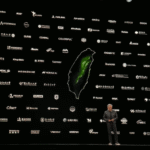Traditionally in Korea, public television marketing is monopolized by big corporates. However, the trend has been shifting, with many IT startups in Korean beginning to use TV advertising as one of their main marketing strategy to reach out to millions of potential users, on a scale they could never have achieve in the past.
Woowa Brothers Corp., the developers of popular application The Race of Delivery which enables users to place food delivery on their mobile devices, marketed their product through TV advertisement. The commercial parodies famous paintings like Millet’s ‘The L’Anglus’ and Manet’s ‘The Luncheon on the Grass.’ According to the company, the number of visitors increased from 2 million in May to 2.1 million in June after their TV commercial was launched. This is 70 ,000 more visitors compared to its biggest competitor, Yogiyo, the second largest delivery application in Korea.
Yogiyo, another IT startup, featured a TV commercial highlighting the app’s convenience. In the commercial, Shin-Hye Park, an attractive Korean female celebrity, stresses the app’s ability order food without making a phone call. Yogiyo’s commercial has been aired on three public TV channels, twenty cable channels, and all of IPTV channels targeted around lunch time from 11 AM to 1 PM and dinner time around 5PM to 9 PM.
The growing competition for food delivery mobile application industry grew approximately up to 1 billion US dollars. This is close to 10% of the entire food delivery industry in Korea.
Along with this growing trend in TV commercial, CooCha, the social mobile application similar to Groupon or LivingSocial in America, hired Korea’s popular comedian and created ‘it’s cheap’ commercial that hilariously stresses what their app offers—cheaper deals for almost everything. Based on the company analysis, the number of new users increased about seven times after their TV commercial was aired.
In Korea, it costs about 2 million US dollars in average to successfully launch a TV commercial. This is certainly a large sum of money, which makes TV commercials a risky investment for IT Startups.
TV advertisement, however, is not the only way for IT startups to market their products in Korea. Noom Inc., the global healthcare startup, introduced their fitness application Noom Diet Coach through one of Korea’s popular television program that featured popular Korean celebrities working at Noom’s New York Headquarter. Other mainstream television channels in Korea also help new Startups gain public exposure by creating TV shows such as ‘The Creation’, which was designed to discover and help new startups.
“This trend of IT Startups using TV media as their main marketing strategy is probably caused by those that strategically targeted early adaptors who prefer innovative products and service in the beginning. Those companies are now trying to expand their market and reach out to larger public,” said one of the Startup insiders. “Although it is risky investment, I think what these startups are doing is worth it.”




![[기고] 위험은 스타트업이, 열매는 공공이… 혁신의 주인공은 누구인가 3f3b00ac-efb7-456f-8bae-91cb3c75e27d](https://platum.kr/wp-content/uploads/2025/10/3f3b00ac-efb7-456f-8bae-91cb3c75e27d-1-150x150.jpg)


Leave a Comment